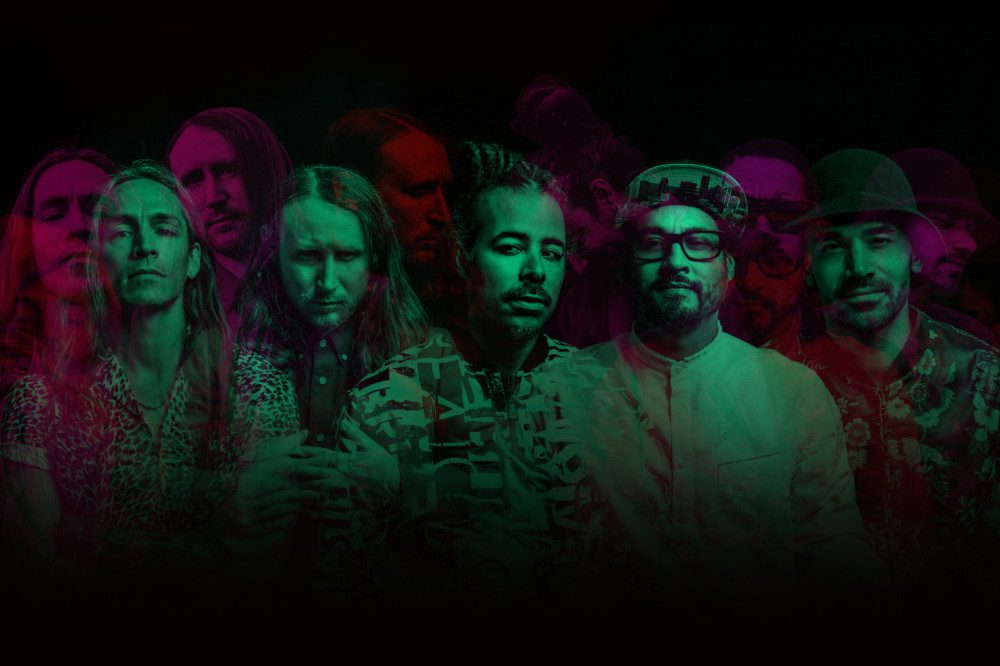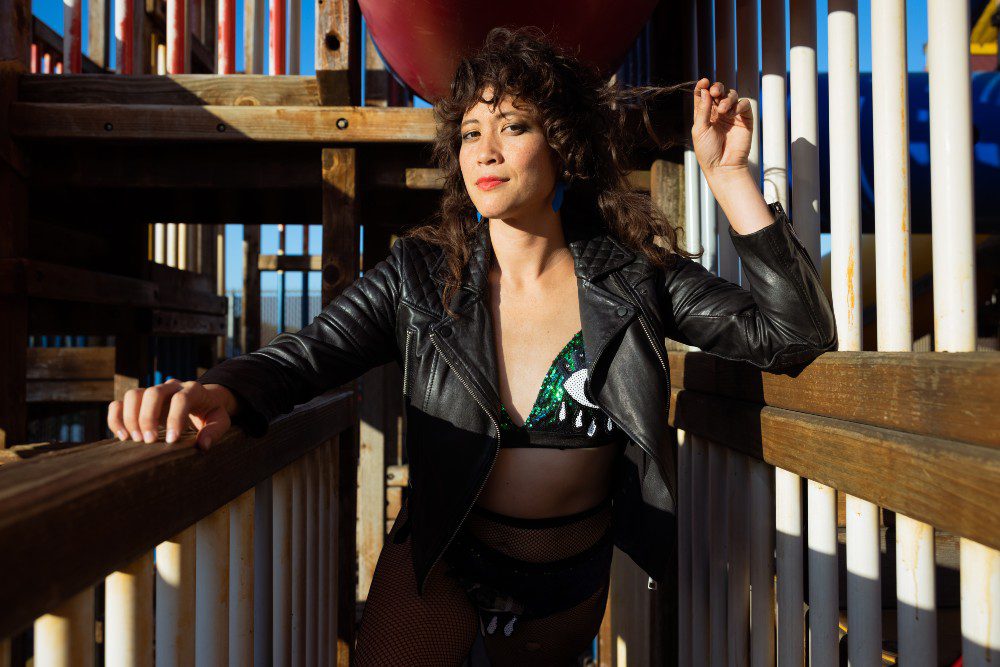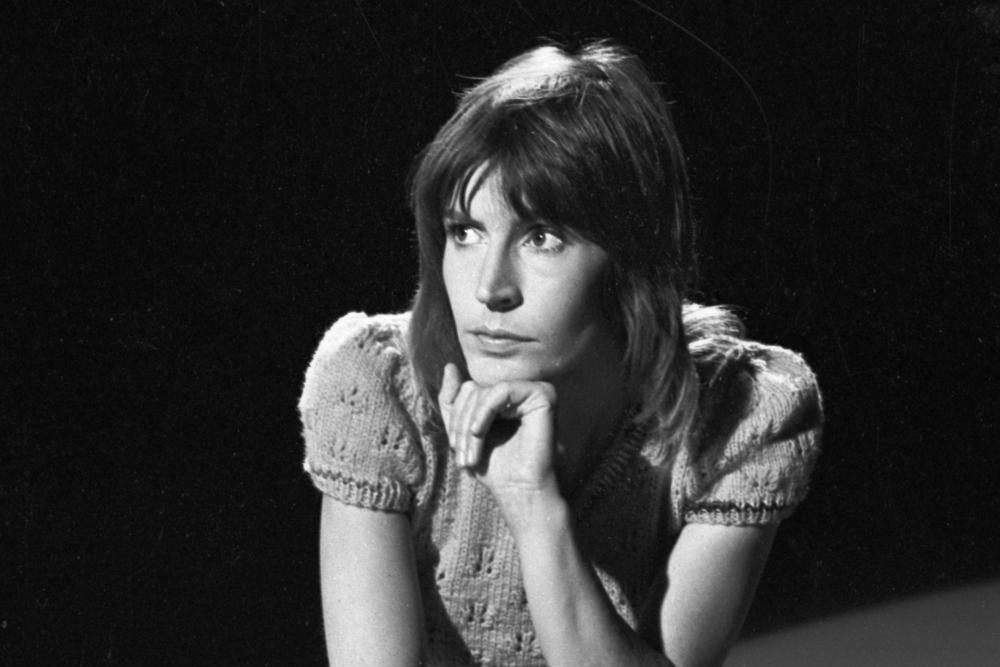

“Who am I without touring?” That was the question most on Raye Zaragoza’s mind last year. Pre-pandemic, the folk musician had been on the road for three years, nonstop ─ and like many, coping with suffocating isolation in lockdown was a challenge. Forced to reckon with her identity off the road, and finding more time than ever to be creative, she looked inward to reassess her place in the world and what she had to say.
As jarring as it was to stay home, Zaragoza first learned the truth about how constant touring was wearing down her body and morale, Going forward, she says, “I definitely want to have more balance and more time for solitude, writing, and travel.”
This realization brought deeper understanding that her worth and value as an artist “isn’t just in the shows you play. It’s in everything you do,” she adds. “So often, as artists, we feel like we’re only working when we’re touring, releasing, or actively promoting something. We’re artists at all times.”
She then soon learned the beauty in songwriting and the liberation she felt when she wrote without purpose. “[It] became freer for me. Over the spring and summer, I was writing every day because I wanted to. I wrote so many quarantaine songs,” she says with a laugh. “I made writing a practice again. I fell back in love with writing and remembered why I started doing this.”
In October 2020, Zaragoza released her second record, Woman in Color, a provocative depiction of what it means to be a Japanese-American, Mexican, Indigenous woman living in America. She combs an anxiety-riddled childhood, during which she always felt isolated and alone because of her mixed heritage, racism that’s contaminated the folk music scene, and definitions of femininity. 10 songs encompass her entire life’s journey, and she’s finally taking up space.
“[This album] was so much a reckoning with my racial insecurities,” she shares with Audiofemme. “I felt disassociated from all my racial backgrounds and always very alienated. I didn’t feel welcome in any of the communities, and I wasn’t welcomed in mainstream American society because I was not white. I always felt really alone as a kid and like there was something wrong with me. I would wake up and wish I could be just one race ─ or white. It was tough.”
Along her journey, she soon “realized I was not the only young girl who felt that way,” she says. Woman in Color (produced by Tucker Martine) brims with all her blood, sweat, and tears and reads like a collection of “love letters to my 12-year-old self,” she surmises. She also calls to her mother’s story as an immigrant from Japan, who came to this country with a faceless passport ─ because she was also Taiwanese and “no country claimed her for their own.”
Such an inherited identity crisis is the lifeblood of Zaragoza’s intensely probing new record. “There is a part of [my family] that wants to be proud of who we are, but there’s a part that’s been pressured to fit in and assimilate,” she remarks.
She casts her family’s collective misery right into the flames etched out of her songwriting. Songs like “Warrior,” “Fight Like a Girl,” “Change Your Name,” “The It Girl,” and “Ghosts of Houston Street” ignite from the inside out, with Zaragoza’s imposing vocal presence glowing red-hot like iron.
Woman in Color also excels with its sweeping instrumentation and hooks that seem to crawl under the skin. Zaragoza admits she can’t take all the credit; although, the choruses are so wholly her own, they would never work in someone else’s hands. “I would have these little melodic ideas or snapshots, and the co-writer [would] help me bridge them to the full song. I collaborated with some really incredible songwriters [namely, John Lardieri, Joseph Pisapia, and Ben Wylen] who took my melody writing to the next level, while also letting me take the reins on lyrics. It was amazing to get pushed in both directions.”
Zaragoza’s journey has been a fascinating one. She first confronted her pain with 2017’s debut, Fight for You, and “In the River” was the catalyst for the introspective voyage. It was the self-inflicted shove she needed, and the floodgates burst open. “I’d written songs out of need before,” she says, “but in terms of this specific place of healing, it’s the first time I’d ever written a song where there was something big happening in the world and I was feeling very distressed about it.”
She knew that in “order to heal others, I have to first heal myself. I can’t write a song with the intention of ‘I’m going to write a song to make someone feel better.’ It doesn’t work that way for me.”
As she’s reached greater levels of healing, either through songwriting or meditation, she has gained confidence in not only her work but her willingness to have difficult conversations. In a TalkHouse piece with fellow folk musician Lizzie No, the two openly discuss what it’s like being women of color in folk music, and the harmful effects of tokenization.
Three months later, Zaragoza is floored by how “powerful and cutting” that moment was and is for her. “What makes it [that way] is the fact that me and Lizzie were so comfortable talking. We felt we had such a safe space,” she says. “To see it all in writing was like whoa. I’d never experienced this. We do experience these things, and we never talk about them. It was almost out of my comfort zone in the best way possible. I feel like I need to be talking candidly about this more and more.”
2020 also saw the performer writing music for a documentary called Gather, an intersection of indigenous wisdom and food. Director Sanjay Rawal (who previously helmed 2014 agricultural labor doc Food Chains) approached Zaragoza early 2018, and she quickly started studying transcripts to get a complete understanding of the project. “It was really powerful,” she reflects. “A lot of times in American culture, we have a lack of respect for the food we eat. We process it like crazy and are [always] looking for the cheapest way. This film is so much about this slow, meaningful way of harvesting, making, and consuming food. It’s really beautiful.”
For her part, she co-wrote a song called “Mother, We’ll Meet Again” with Ben Wylen and performs the moving number for the film’s credits. “[The song] is about food and my own experience of being a member of modern day society and learning how to return home,” she explains. “That’s how I feel as someone with indigenous ancestry ─ learning about what it means and returning home, whether that’s physically, mentally, or emotionally. Food is one of those ways of reminding ourselves what home is. We’re human beings. It’s us and Mother Earth.”
Zaragoza absolutely beams when talking about her work. Now, as she closes a chapter, she looks forward to a year full of promise, personally and professionally. She eyes a possible children’s book, honing her producing skills for her own music, and continuing her role as a composer for Netflix’s forthcoming Spirit Rangers, an all-Native fantasy/adventure animated series.
“I write songs for the characters. There’s a song in every single episode. There are so many characters, so I’m writing songs for so many voices and circumstances. It’s spectacular,” she says.
The show is greatly inspired by Indigenous stories with a “modern day twist,” she teases. “I’ve never composed for television before. I haven’t had a boss in music ever, really. I’ve always done things independently, so I have someone to answer to and I have deadlines. I have notes. It’s definitely a different pace for an indie artist.”
Follow Raye Zaragoza on Twitter and Instagram for ongoing updates.




